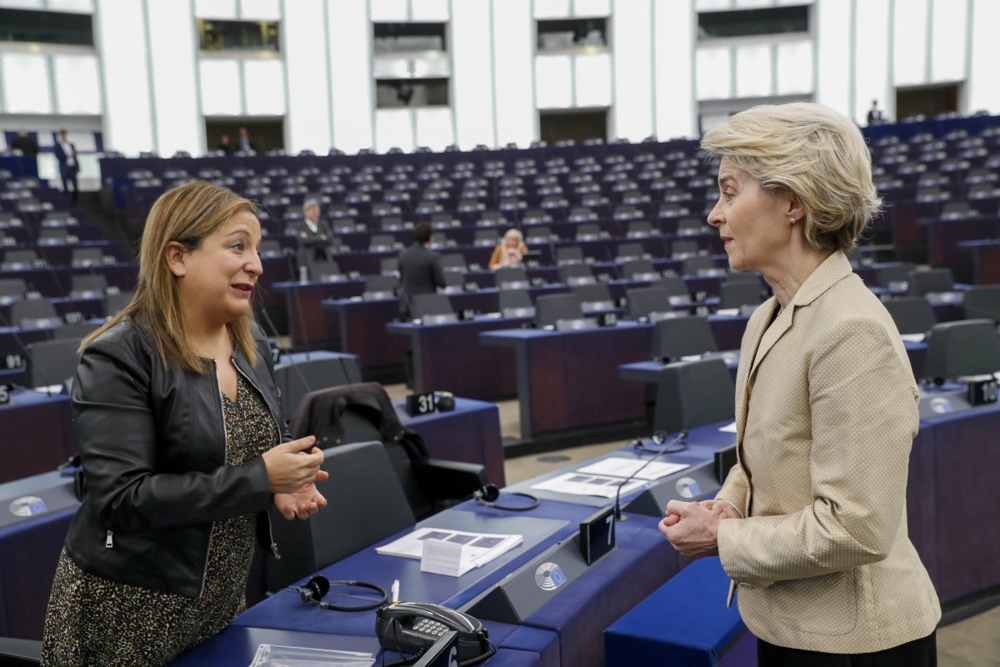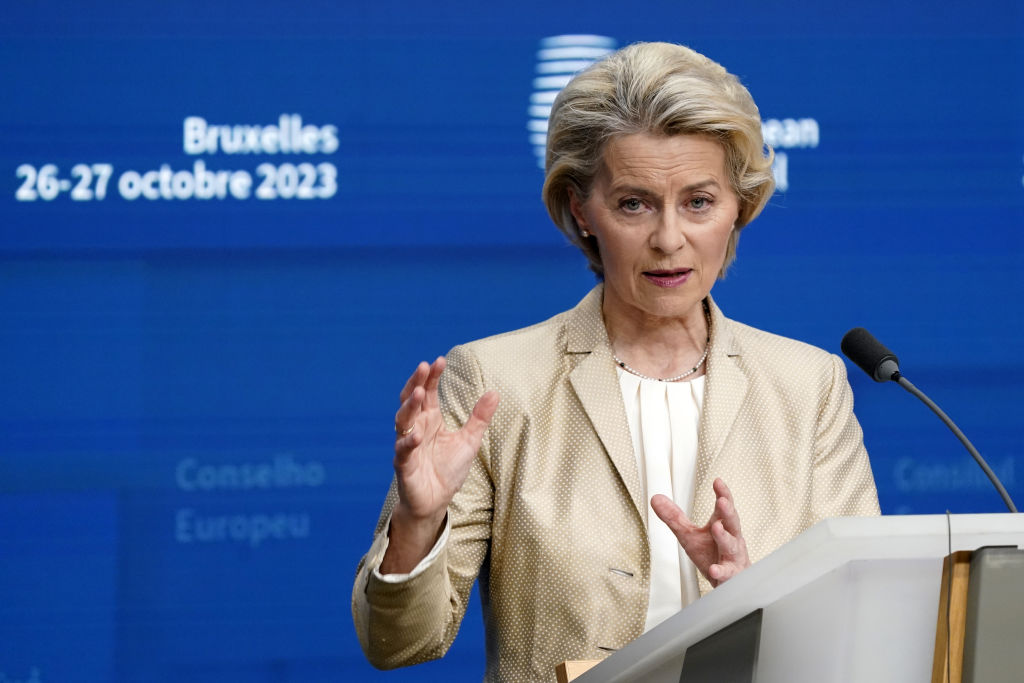Backing for European Commission President Ursula von der Leyen within the European Parliament is now on a knife-edge, with new polling predicting the forthcoming Parliament elections will wreak havoc on her fragile support base.
According to research by the European Council of Foreign Relations, three of the parties that support her will suffer significant losses in the vote, with backing instead flooding to the populist Right.
Researchers estimated that the Liberal Renew group will lose 16 seats in the coming election in June, while the left-wing Progressive Alliance of Socialists and Democrats (S&D) group will see its number of representatives fall by 10.
Combined with an expected loss of five seats within Von der Leyen’s own European People’s Party, it is expected that the fragile alliance consisting of the three groups in Parliament will represent 56 per cent of the house, down from 60 per cent this term.
By contrast, both of the populist organisations in Parliament are expected to increase their seat share, with the European Conservative and Reformist groups set to see 18 more of its members installed in September.
Identity and Democracy is expected to see its support surge, with an extra 40 seats after the coming vote.
“The findings of our new study indicate that the composition of the European Parliament will shift markedly to the Right at this year’s elections,” said report co-author Dr Kevin Cunningham.
He added that power shift will likely make it more difficult for the incoming EC to pursue its progressive agenda policies, such as the European Green Deal.
VIDEO: Should YOU vote in June? ?️??
Our Head of News Justin Stares suggests a swing to the Right in the European Parliament could have implications for Commission President Ursula von der Leyen's reappointment. ⬇️
?️ Click here to watch the full video: https://t.co/vORtcLdlMh pic.twitter.com/8WZox5wQ8a
— Brussels Signal (@brusselssignal) January 22, 2024
Such an expected shift in political allegiance may also make Von der Leyen’s path to re-appointment more difficult.
While she has so far not said she wants to stand again this year, most pundits expect her to try to retain the top job.
That would require the approval of the new European Parliament, something that may prove more difficult as support for the German politician declines.
Von der Leyen was elected in 2019 on a tight margin, requiring the backing of the EPP, S&D group and Renew to be appointed to the position.
Some suspected last-minute defections within S&D during the secret ballot also left her with less support than anticipated. It was felt neutral forces in the Parliament pushed her just nine votes over the 374 she needed to be elected.
Such defections, if they occur again, will likely prove even more costly in 2024 as Von der Leyen’s coalition would struggle to function with 31 fewer seats.
An alternative scenario involves the EPP group forming an absolute majority coalition with parties on the Right.
While such an alliance would likely be technically feasible later this year, pundits have already predicted the EPP will not be willing to co-operate with those on the hard-right.
Donald Tusk told allies he may only be PM for a year, and then return to Brussels to succeed Ursula von der Leyen as European Commission president. https://t.co/hglwK75TVu
— Brussels Signal (@brusselssignal) November 16, 2023





